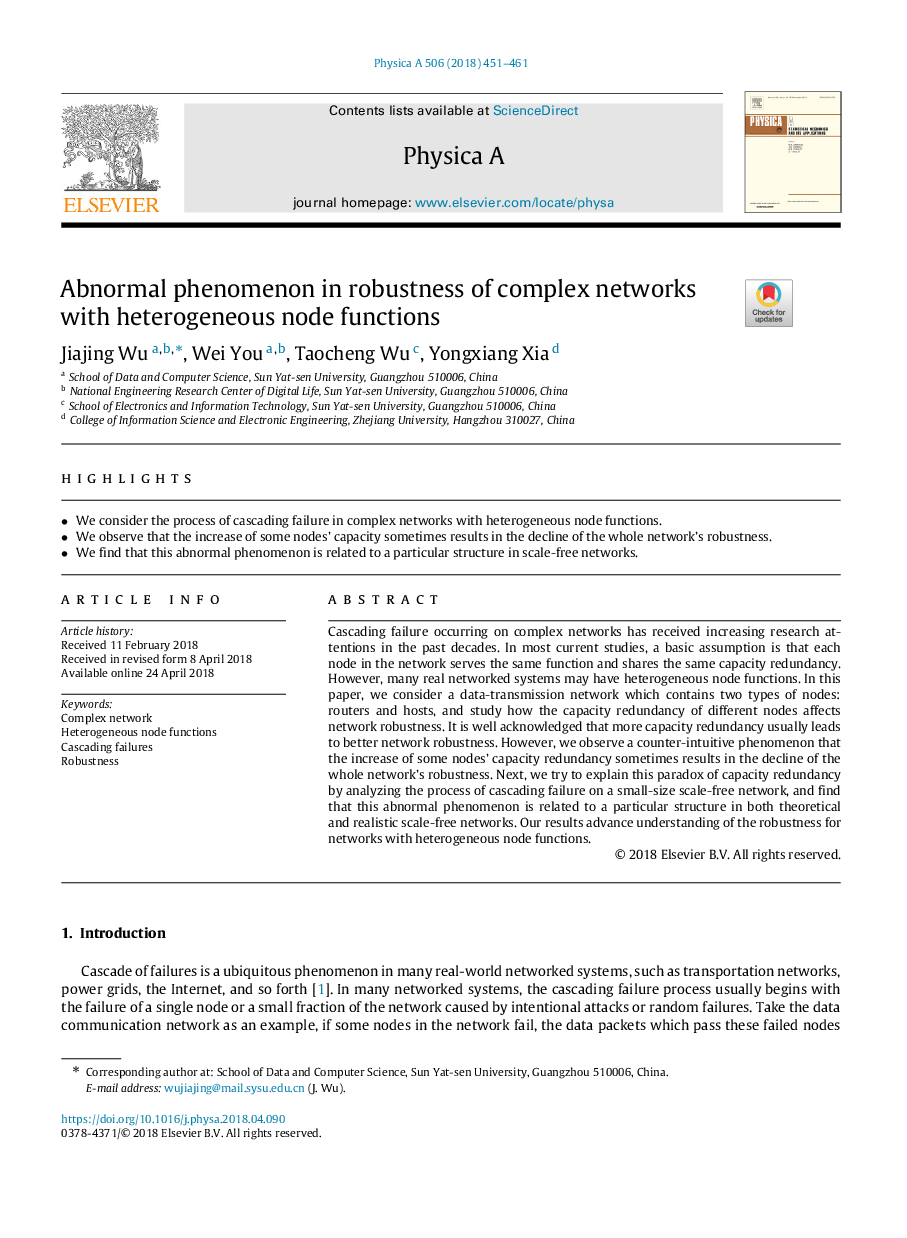| Article ID | Journal | Published Year | Pages | File Type |
|---|---|---|---|---|
| 7375007 | Physica A: Statistical Mechanics and its Applications | 2018 | 11 Pages |
Abstract
Cascading failure occurring on complex networks has received increasing research attentions in the past decades. In most current studies, a basic assumption is that each node in the network serves the same function and shares the same capacity redundancy. However, many real networked systems may have heterogeneous node functions. In this paper, we consider a data-transmission network which contains two types of nodes: routers and hosts, and study how the capacity redundancy of different nodes affects network robustness. It is well acknowledged that more capacity redundancy usually leads to better network robustness. However, we observe a counter-intuitive phenomenon that the increase of some nodes' capacity redundancy sometimes results in the decline of the whole network's robustness. Next, we try to explain this paradox of capacity redundancy by analyzing the process of cascading failure on a small-size scale-free network, and find that this abnormal phenomenon is related to a particular structure in both theoretical and realistic scale-free networks. Our results advance understanding of the robustness for networks with heterogeneous node functions.
Related Topics
Physical Sciences and Engineering
Mathematics
Mathematical Physics
Authors
Jiajing Wu, Wei You, Taocheng Wu, Yongxiang Xia,
